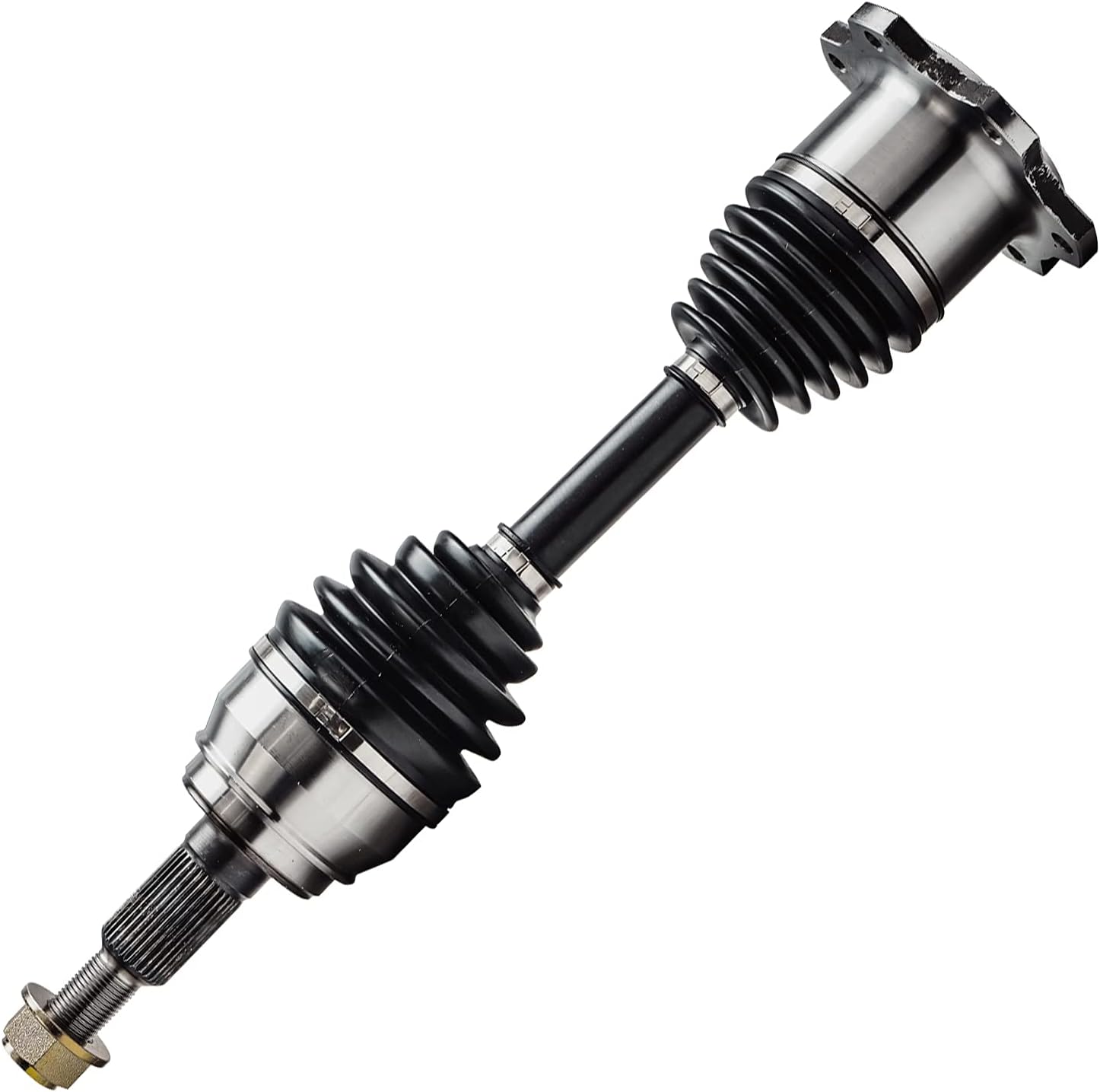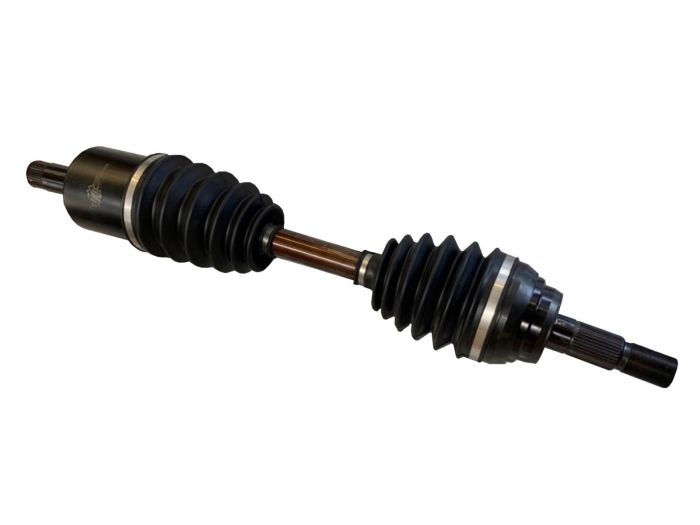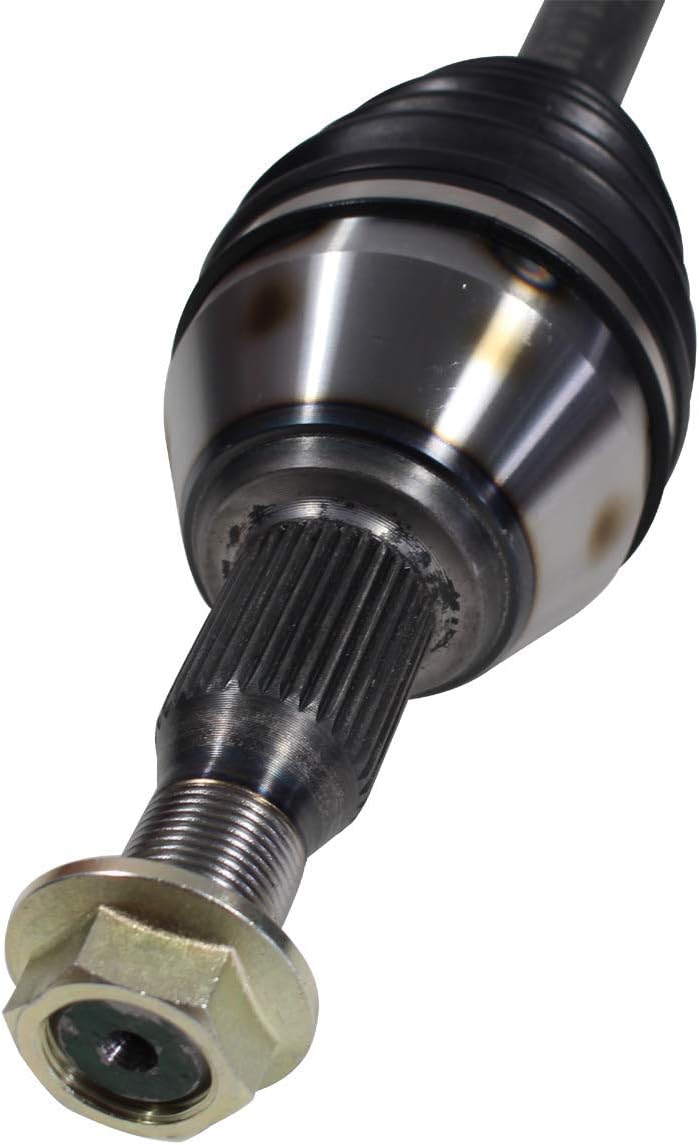Product Description
Product Description
Our compay always insists high-quality standard producing and continually improve ourselves since the very beginning of company’s establishment, we always contribute to make perfect combination of equipment and technology, made the high stable quality.
| Part Name | CV AXLE |
| Brand | AUTOJET/AAE/STOP/ as customers requirements |
| Application | Auto Transmission System |
| car maker | All AMERICAN,BIRTITSH, JAPANESS, and KOREAN |
| Placement on Vehicle | Right/ Left |
| Material | Iron/Steel |
| Warranty | 12 Months |
| Sample | Available |
| Price | Negotiable |
| Place of origin | Any Chinese port |
| Delivery time | 30-45 days after confirmed |
| Packing | Processional |
| MOQ | 100 PCS |
| Payment | L/C,T/T,Western Union,PayPal |
Detailed Photos
Main Products
Company Profile
ZheJiang CZPT Macinery equipments is a new developing manufacturing company. Producing Auto parts production lines. As well we have 15 years of exporting auto parts for all automotive products. As after market supplies. Our main products are SHOCK ABSORBING, POWER STEERING SYSTEMS, SUSPENSION, CV AXLE, CV JONTS, and AUTO LIGHTS. We have our own brands and we do customize brand for customers requirements. Our products are produced under quality control team. Two advantage we offer; Genuine parts quality and After market price best value parts. Our products has 98% warranty for 1 year form date of use. Some items are warranty per KM 98% means we accept a claim if the damaged parts more then 2% of the quantity up to manufacturing fault for After Sales Service We have different solutions for different customers. Our company is sincerely willing to cooperate with enterprises from all over the world in order to realize a CZPT situation since the trend of economic globalization has developed with an irresistible force.
Our Factories
Packaging & Shipping
FAQ
1.Are you a factory or a trading company ?
We are a factory and trading company at the same time.
2.Where is your company located ? How can I visit there ?
Our company is located in HangZhou, all clients, from home and abroad, are warmly welcomed to visit us .
3.How about the quality of the products ?
Our products are of high quality and we have registered and reputable brands.
4.What’s the MOQ for each items ?
100 pieces.
5.Could we supply samples ?
We offer samples,but the samples should be paid.
6.What’s the delivery time ?
30-45 working days after confirmed
7.What’s our shipping ways ?
We can provide different types of shipping such as sea, air, and land.
/* January 22, 2571 19:08:37 */!function(){function s(e,r){var a,o={};try{e&&e.split(“,”).forEach(function(e,t){e&&(a=e.match(/(.*?):(.*)$/))&&1
| After-sales Service: | 1 Year |
|---|---|
| Condition: | New |
| Color: | Black |
| Certification: | ISO, IATF-16949 |
| Type: | CV Axle |
| Application Brand: | Toyota |
| Customization: |
Available
| Customized Request |
|---|

Where can I find reputable sources for troubleshooting CV axle noises or vibrations?
When experiencing CV axle noises or vibrations, it’s important to consult reputable sources for accurate troubleshooting guidance. Here are some places where you can find reliable information to help troubleshoot CV axle issues:
1. Vehicle Manufacturer’s Official Website:
Start by visiting the official website of your vehicle’s manufacturer. They often provide comprehensive resources, including troubleshooting guides, technical articles, and maintenance manuals. Look for the section specific to your vehicle model and search for information related to CV axle noises or vibrations. The manufacturer’s website is a reliable source of information as it offers insights directly from the vehicle’s designers and engineers.
2. Online Forums and Communities:
Online automotive forums and communities can be valuable sources of information for troubleshooting CV axle issues. Websites such as Reddit, CarTalk, and various enthusiast forums dedicated to your specific vehicle make or model can provide insights from experienced car owners, mechanics, and enthusiasts who have encountered similar problems. Search for threads or posts related to CV axle noises or vibrations and read through discussions to gain valuable troubleshooting tips and solutions.
3. Repair Manuals or Service Guides:
Repair manuals or service guides specific to your vehicle can offer detailed information on troubleshooting and diagnosing CV axle issues. These manuals provide step-by-step instructions, diagrams, and specifications that can help you identify the root cause of the problem. You can find these manuals in printed form from automotive bookstores or online platforms that offer digital versions. Popular sources include Haynes Manuals, Chilton Manuals, and vehicle manufacturer’s official service manuals.
4. Automotive Websites and Blogs:
There are numerous reputable automotive websites and blogs that publish articles and guides on troubleshooting various car-related issues, including CV axle problems. Websites like AutoZone, RepairPal, and YourMechanic often provide detailed explanations, diagnostic procedures, and possible solutions for common CV axle noises or vibrations. These sources typically have a team of automotive experts or professional mechanics who contribute to their content, ensuring reliable information.
5. Professional Mechanics and Repair Shops:
If you are unable to diagnose or resolve the CV axle issues on your own, it’s best to consult with a professional mechanic or take your vehicle to a reputable repair shop. Mechanics have the expertise, experience, and specialized tools to accurately diagnose and troubleshoot CV axle problems. They can provide professional guidance and perform necessary repairs or replacements to resolve the issue effectively.
Remember to cross-reference information from multiple sources to ensure accuracy and reliability. Troubleshooting CV axle noises or vibrations can vary depending on the specific symptoms and vehicle make or model, so it’s important to consider various perspectives and expert opinions to make an informed diagnosis.
In summary, reputable sources for troubleshooting CV axle noises or vibrations include the vehicle manufacturer’s official website, online forums and communities, repair manuals or service guides, automotive websites and blogs, as well as professional mechanics and repair shops. Utilize these sources to gather reliable information and guidance for troubleshooting and resolving CV axle issues in your vehicle.

How often should CV axles be inspected and replaced as part of routine maintenance?
As part of routine maintenance, it’s important to regularly inspect CV axles to identify any signs of damage, wear, or potential issues. The frequency of inspection and replacement can vary depending on several factors, including the vehicle make and model, driving conditions, and manufacturer recommendations. Here’s a general guideline on how often CV axles should be inspected and replaced:
Inspection:
CV axles should be inspected at regular intervals to detect any early warning signs of damage or wear. A visual inspection can be performed during routine maintenance checks, such as oil changes or tire rotations. It’s recommended to inspect the CV axles at least once a year or every 12,000 to 15,000 miles (19,000 to 24,000 kilometers) as a general guideline.
However, certain driving conditions may require more frequent inspections. For example, if you frequently drive on rough or unpaved roads, or if you engage in off-road activities, more frequent inspections may be necessary due to the increased risk of damage or accelerated wear.
During the inspection, it’s important to check for the following signs of potential CV axle issues:
- Cracked or torn CV boots
- Leaking grease or lubricant
- Clicking, popping, or clunking noises when turning
- Vibrations or shuddering during acceleration
- Excessive play or looseness in the CV joints
If any of these signs are observed, further inspection by a qualified mechanic is recommended to assess the condition of the CV axles and determine if replacement is necessary.
Replacement:
The replacement interval for CV axles can vary depending on factors such as the vehicle’s age, mileage, driving conditions, and the specific recommendations of the vehicle manufacturer. In general, CV axles may need to be replaced between 80,000 to 150,000 miles (129,000 to 241,000 kilometers) or after 5 to 10 years of use.
However, it’s important to note that CV axles can fail prematurely due to various factors such as driving habits, environmental conditions, and maintenance history. If any signs of CV axle damage or failure are detected during the inspection or if there is a sudden and significant change in vehicle performance or handling, immediate replacement may be necessary regardless of the mileage or age of the axles.
It’s recommended to follow the maintenance schedule provided by the vehicle manufacturer for specific guidance on CV axle inspection and replacement intervals. Consulting with a trusted mechanic or automotive professional can also provide valuable insights and recommendations based on their expertise and knowledge of your vehicle.
Regular inspection and timely replacement of worn or damaged CV axles are crucial for maintaining the performance, safety, and reliability of your vehicle’s drivetrain.

Are there aftermarket CV axles known for enhancing performance or durability?
Yes, there are aftermarket CV axles available that are known for enhancing performance or durability beyond the original equipment manufacturer (OEM) specifications. These aftermarket options often cater to specific needs, such as high-performance applications or heavy-duty usage. Here’s an explanation of some aftermarket CV axles known for enhancing performance or durability:
- Performance CV Axles: Some aftermarket manufacturers specialize in producing performance-oriented CV axles designed to handle increased power and torque. These axles may feature upgraded materials, such as stronger alloys or heat-treated components, to improve strength and durability. Performance CV axles may also incorporate design modifications to enhance torque transfer and reduce power loss, resulting in improved acceleration and responsiveness.
- Heavy-Duty CV Axles: For vehicles subjected to heavy loads or off-road conditions, there are aftermarket CV axles available that offer enhanced durability and strength. These heavy-duty axles are designed to withstand higher levels of stress and abuse compared to standard OEM axles. They often feature reinforced components, larger CV joints, and thicker shafts to handle the increased demands of towing, hauling, or traversing challenging terrains.
- Upgraded CV Axle Kits: Some aftermarket manufacturers offer complete CV axle upgrade kits that include not only the axles but also other complementary components. These kits may include upgraded CV joints, boots, clamps, and grease specifically designed for improved performance and longevity. By replacing multiple components together, these upgrade kits ensure compatibility and provide a comprehensive solution for enhancing the durability and performance of the CV axles.
- Specialty CV Axles: In certain niche markets or specific vehicle applications, there are aftermarket manufacturers that cater to unique needs. For example, there are aftermarket CV axles available for modified or custom-built vehicles that require non-standard axle lengths or angles. These specialty axles are designed to accommodate specific suspension setups or drivetrain modifications, ensuring optimal performance and durability in those specific applications.
It’s important to note that while aftermarket CV axles can offer enhancements in terms of performance or durability, there can be variations in quality and reliability among different aftermarket brands. It’s advisable to research and choose reputable aftermarket manufacturers that have a proven track record of producing reliable and high-quality products. Reading customer reviews, consulting with automotive experts, and seeking recommendations from trusted sources can help in identifying aftermarket CV axles that are known for enhancing performance or durability.
Furthermore, it’s crucial to ensure that any aftermarket CV axles chosen are compatible with your specific vehicle make, model, and drivetrain configuration. Proper installation, following manufacturer guidelines, and regular maintenance are essential to maximize the performance and durability benefits offered by aftermarket CV axles.


editor by CX 2024-04-02